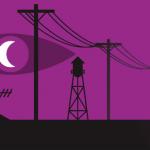C. Wright Mills, in The Causes of World War Three (1958)
Sunk in the details of immediate and seemingly inevitable decisions to which he feels compelled to react, the crackpot realist does not know what he will do next; he is waiting for another to make a move.
The expectation of war solves many problems of the crackpot realists; it also confronts them with many new problems. Yet these, the problems of war, often seem easier to handle. They are out in the open: to produce more, to plan how to kill more of the enemy, to move materials thousands of miles. The terms of the arms race, once the race is accepted as necessary, seem clear; the explicit problems it poses often seem “beyond politics,” in the area of administration and technology. War and the planning of war tend to turn anxiety into worry; perhaps, as many seem to feel, genuine peace would turn worry into anxiety.
War-making seems a hard technological and administrative matter; peace is a controversial and ambiguous political word. So instead of the unknown fear, the anxiety without end, some men of the higher circles prefer the simplification of known catastrophe. The official expectation of war also enables men to solve the problems of the economic cycles without resort to political policies that are distasteful to many politicians and to large segments of the American public. The terms of their long-term solution, under conditions of peace, are hard for the capitalist elite to face.
Some of them, accordingly, have come to believe that the world encounter has reached a point where there is no other solution but war, even when they sense that war can be a solution to nothing.
Walker Percy, in The Moviegoer (1961)
What happens to a man to whom all things seem possible and every course of action open? Nothing of course. Except war. If a man lives in the sphere of the possible and waits for something to happen, what he is waiting for is war — or the end of the world.













